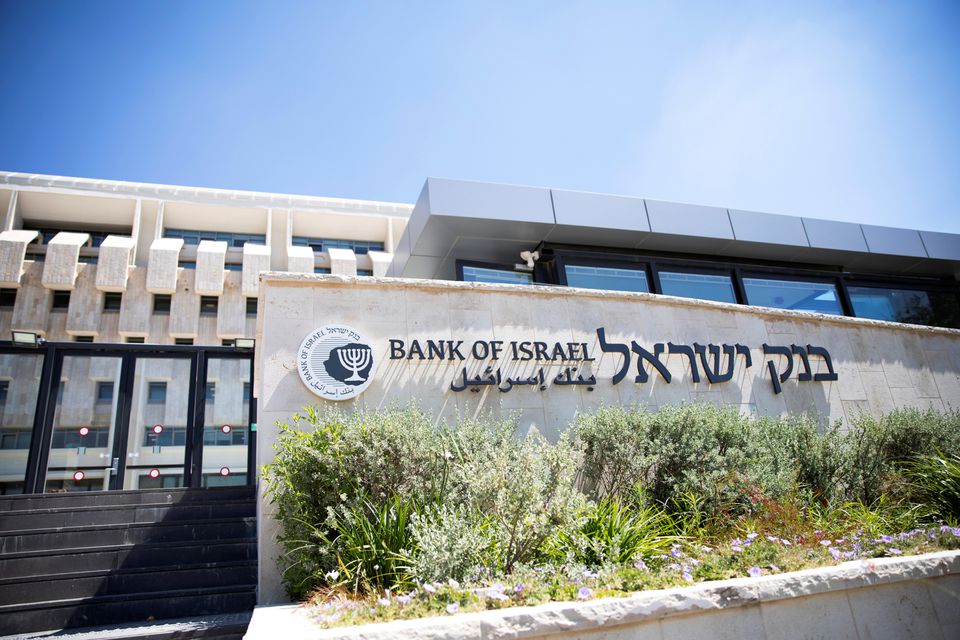The Bank of Israel is expected to leave short-term interest rates unchanged next week but analysts believe a cut is possible as early as August following a swift war with Iran that likely set back the Iranian nuclear programme.
Ten of the 11 economists polled by Reuters said the central bank will keep its benchmark rate (ILINR=ECI) at 4.5 per cent in the decision on Monday at 4 p.m. (1300 GMT). One economist predicted a reduction to 4.25 per cent.
Israel’s annual inflation rate slowed more than expected to 3.1 per cent in May from 3.6 per cent in April but still remained above its 1-3 per cent target, as prices have stayed high during Israel’s 20-month war with Hamas militants in Gaza, partly on supply pressures.
“Until they (the Bank of Israel) are sure that inflation is decreasing, they will not change,” said Meitav Dash brokerage chief economist Alex Zabezhinsky.
Policymakers voted 5-0 on May 26 to hold rates, citing the risk that inflation could pick up, minutes of the meeting showed.
Since then, the economic and geopolitical landscape have changed drastically – with Israel claiming a decisive victory over Iran that analysts believe removed an immediate Iranian nuclear threat to Israel.
Israel’s shekel has appreciated some 8 per cent against the dollar since the war began on June 13, while Israel’s risk premium has slid.
Israel’s 5-year credit default swap, which is the cost of insuring government debt against default, dropped to 86 basis points, 36 bps lower than it was prior to the war and the lowest since March, according to S&P Global Market Intelligence.
Policymakers have stressed that they could not lower rates until inflation and the risk premium eased. A stronger shekel tends to help lower inflation pressures.
Analysts had expected a rate cut in late 2025 or in 2026 but many have begun moving up those estimates.
Leader Capital Markets chief economist Jonathan Katz believes a cut is possible at the upcoming meeting, noting that the central bank had “emphasised the elevated risk premium for so long and now that it’s down sharply … Why not cut? Monetary policy will still be restrictive at 4.25 per cent.”
Similarly, Bank Hapoalim economist Victor Bahar said the Bank of Israel has “now essentially checked off all the conditions necessary for a rate cut.”
Yet, he said, while it was a close call this month, August 20 would be more likely since the “central bank may wait to see further stabilization of the situation, but a first interest rate cut in August now seems like a plausible scenario.”
Israel’s economy grew an annualised 3.7 per cent in the first quarter. Growth is expected to take a slight hit from the Iran war in the second quarter but bounce back quickly.






Click here to change your cookie preferences